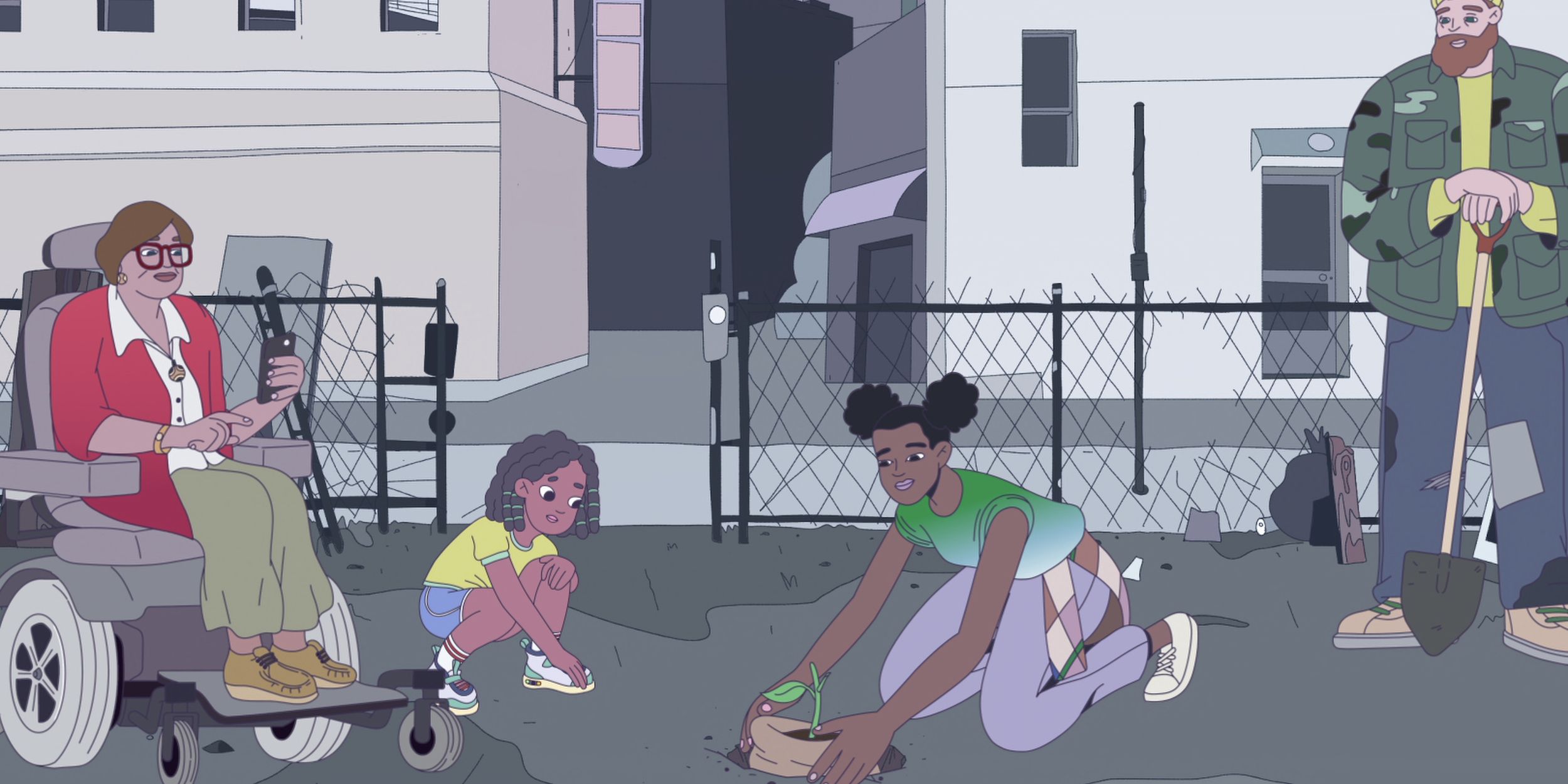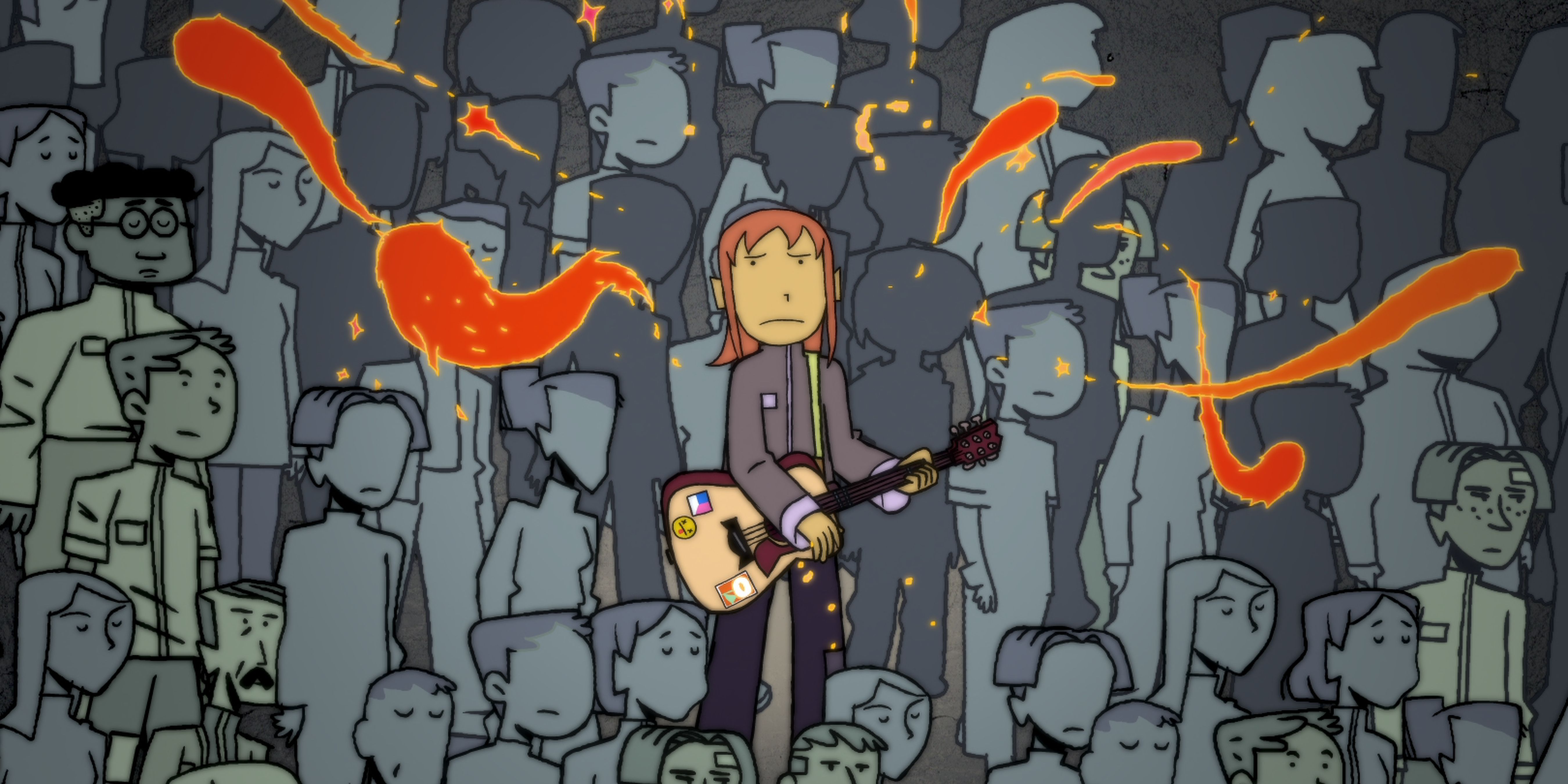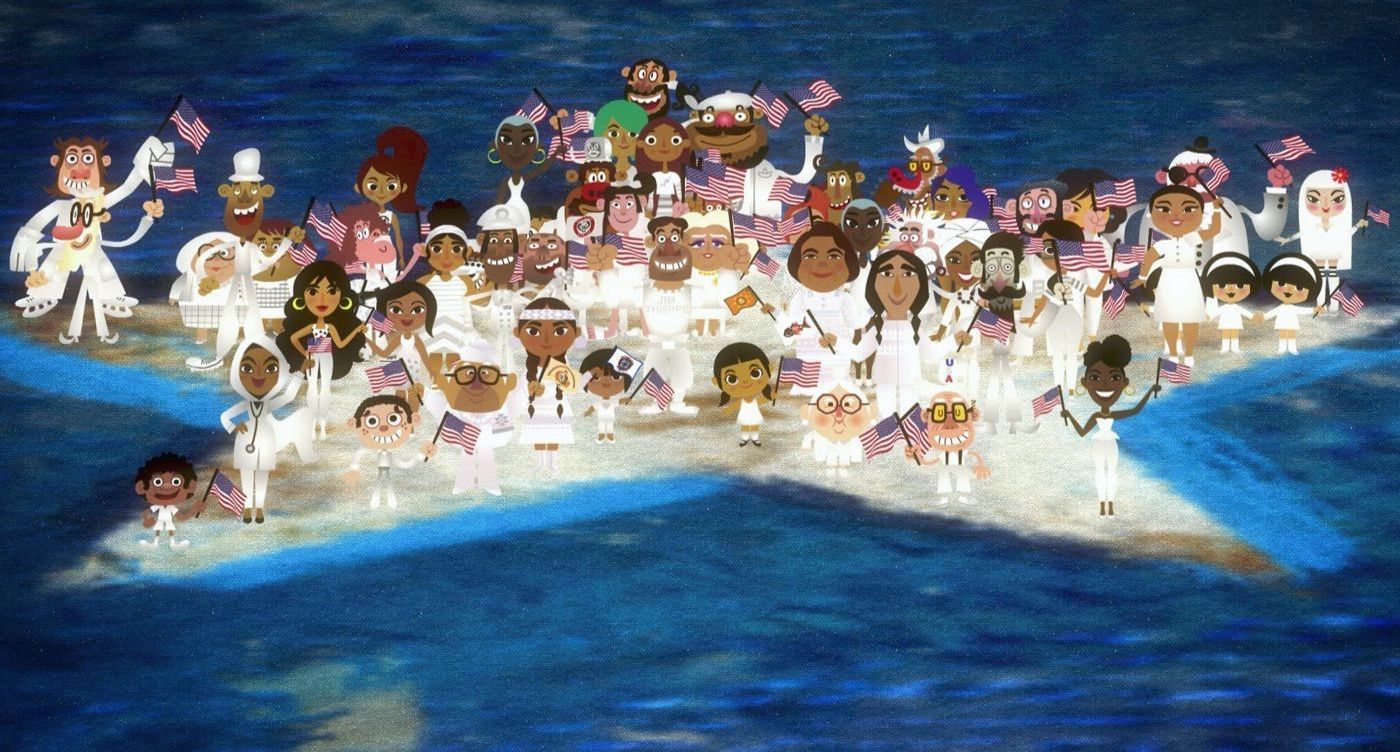
We the People, Netflix's new animated music video series created by Chris Nee and produced by Barack and Michelle Obama's Higher Ground Productions, is tasked with the unenviable assignment to teach kids about the American political system at a time when said system is incredibly broken. The "Hope and Change" optimism that propelled Barack Obama to the White House is in short supply these days. And the Schoolhouse Rock-esque We the People attempts, to mixed degrees of success, to thread the needle between patriotic idealism and acknowledgment of the ways the United States of America has fallen short of such ideals.
This is easiest to do when the subject is activism and the ways young people can get involved in political change even before they're old enough to vote. The premiere episode "Active Citizenship," directed by Spider-Man: Into the Spider-Verse's Peter Ramsey and featuring the song "Change" by H.E.R., serves as the series' main philosophical driving force. The lyrics discuss ways youth can make a change in their communities, while the video alludes to the racial, economic and environmental issues that these communities might be struggling with. "We the People," directed by Everett Downing and featuring the song "Stronger" by Janelle Monáe, emphasizes the collective struggle for justice, looking back at the Civil Rights Movement and the aftermath of Hurricane Katrina.

"The First Amendment" episode, directed by Mabel Ye with Brandi Carlile's song "Speak Your Mind," is a simple but powerful reminder of how important the right to freedom of speech really is. The video's presented as a fantasy of a peaceful uprising amidst a dystopian society, and the lyrics about "walls and division" bring to mind some of the more dystopian aspects of American life today.
Trisha Gum's episode on "The Bill of Rights," with the song "These Are Your Rights" performed by Adam Lambert and written by Frozen's Kristen Anderson-Lopez and Robert Lopez, goes into further constitutional detail, even managing to neutrally address the controversy around the Second Amendment. Cordae's rap on "Taxes," presented with cute cat animations by Victoria Vincent, is willing to get complicated and opinionated about how the government allocates its budgets while encouraging viewers to make up their own minds on the subject.
Where We the People's idealism ends up clashing with rather than acknowledging our current reality is when it tries to teach about how the government balances and uses its powers. Benjy Brooke's episode "The Three Branches of Government" features an array of singers (Kristen Anderson-Lopez and Robert Lopez, Brittany Howard, Hamilton's Lin-Manuel Miranda and Daveed Diggs) singing about "Checks and Balances" in a presentation that feels completely detached from the dysfunction of today's government.
"The Courts" is informative, less for Andra Day's song "All Rise" and more for Daron Nefcy's detailed animation showcasing different court decisions, but it's noteworthy those positive decisions stop showing up after 2015 or so. "Federal vs. State Power," directed by Tim Rauch and using the song "Link Up" by KYLE, presents the balance of state and federal power as a friendly competition between two Black men, conveniently ignoring the ways the "states' rights" debate has been used throughout history and in the present day for purposes of racial discrimination.

Judging by critics' reviews, it seems the most controversial example of We the People choosing to focus on idealism over messy reality has been the "Immigration" episode, directed by Jorge R. Gutierrez and featuring the song "American Citizen" by Bebe Rexha. It's a catchy joyous number, with immigrants from all around the world (including several celebrities) dancing and passing each other American flags. Some have objected to the fact the song doesn't make note of the problems immigrants face under the current system, but in this case, the idealistic focus feels like it's ignoring the problems so much as it's trying to combat the xenophobic perspectives that caused these problems with a statement of pride. Gutierrez was himself in the process of becoming a citizen while making this episode, and the way he draws himself and his wife into the video is touching.
Most of We the People is ultimately dealing with the same content in more or less the same way as it would have six years ago. Your political feelings about Hamilton might make a good litmus test for how you'll feel about this: its optimistic perspective sometimes feels like a relic of the Obama era, and you can either reject it or be moved to do better by it. Then there's the rest that could only be made in 2021: Kendra Ryan's beautifully animated adaptation of Amanda Gorman's moving poem "The Miracle of Morning." It's the least directly political segment yet the most topical, and more than anything else in the series, it's guaranteed to leave you feeling genuine hope.
Created by Chris Nee, We the People is now streaming on Netflix.
0 Comments